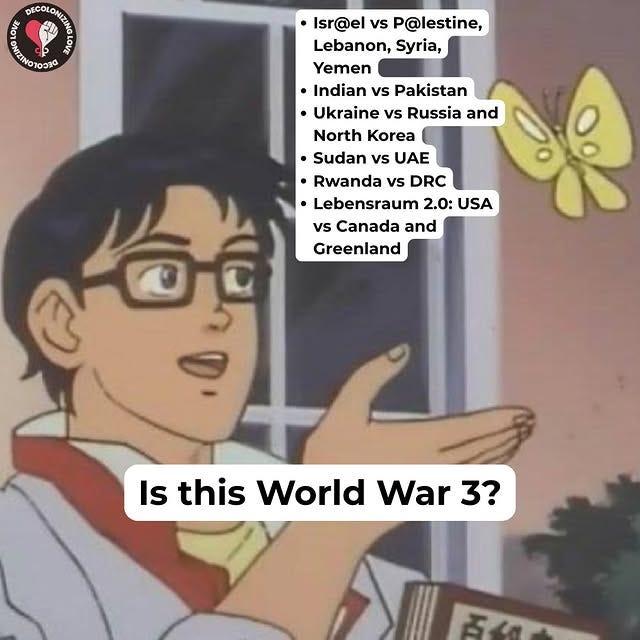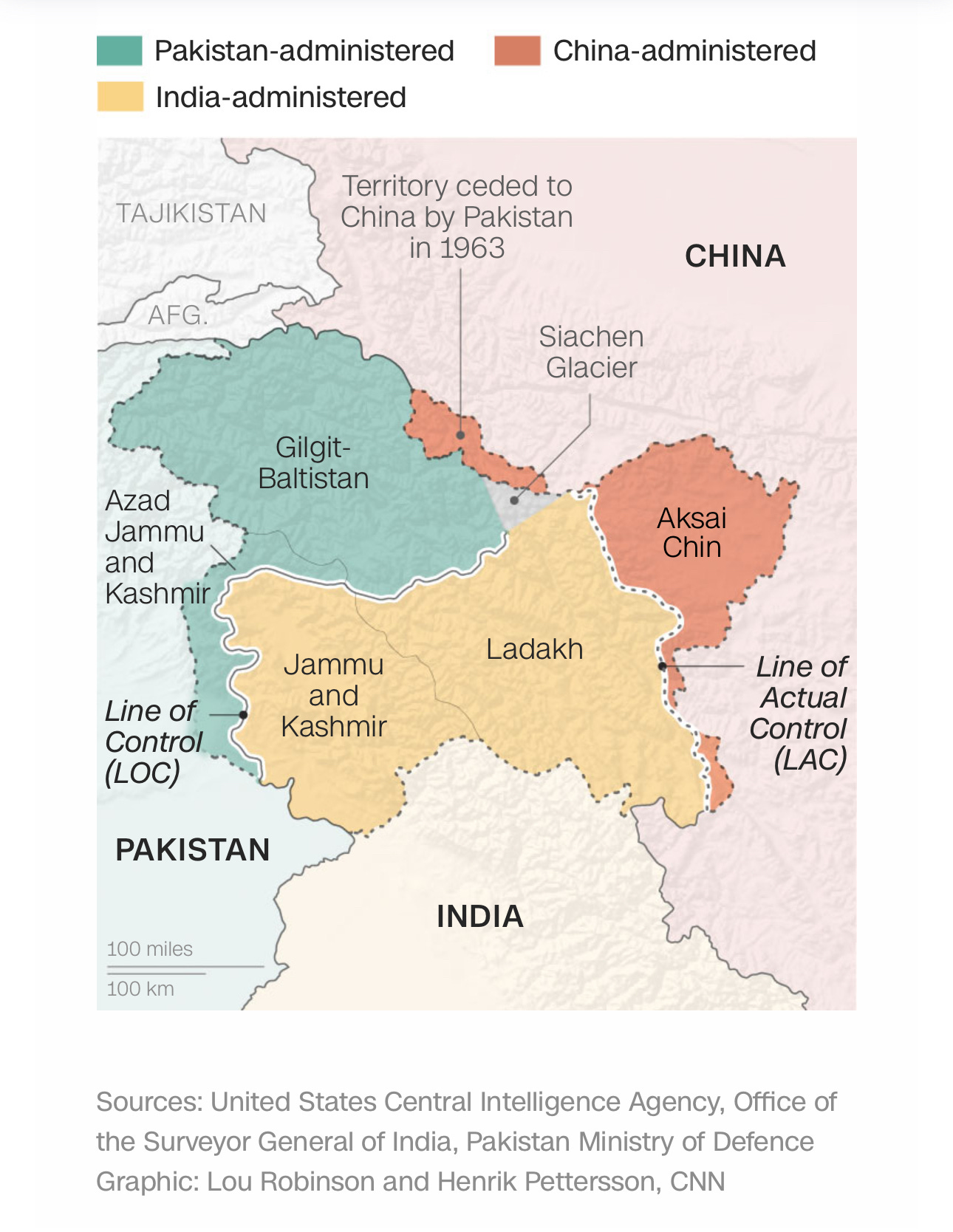We all got some presents for Mother's Day this year
A holiday formed as a plea for peace coincides with a ceasefire in one theater of an emergent world war, and a global role for an American leader standing in antithesis to the president
Happy Mother’s Day! Really, I mean it.
And congrats on the presents. We all have a lot to celebrate.
Embracing peace and repudiating war was the original vision to which Mother’s Day was dedicated….We all received a few gifts this weekend, whether we each knew it or not.
What is Mother’s Day, anyway?
Most people think of Mother’s Day as a day to celebrate mothers and motherhood, which makes a great deal of sense.
But today’s holiday is also much more than that. Among other things, it’s a day to show solidarity with mothers.
Embracing peace and repudiating war was the original vision to which Mother’s Day was dedicated. I discussed that history when we last celebrated today’s holiday last year:
Mother’s Day means more than celebrating mothers
My family lost our mom to cancer in 2016, which led me to dedicate my thanks on today’s holiday to the mothers among my friends, siblings, and in-laws.
Last week, when I noticed today’s holiday looming on the calendar, I recall feeling melancholy, disappointed that the day to celebrate mothers and peace would coincide with so many armed conflicts seeming to emerge in every corner of the world.
But we all received a few gifts this weekend, whether we each knew it or not.
A Mother’s Day present for everyone from the Vatican
The succession of Pope Francis represented a fraught moment in the history of the Catholic Church. The Cardinals tasked with choosing his successor had the opportunity to turn the clock back on progress, or instead embrace it—which they did in a particularly important way.
Pope Leo XIV is poised to continue the humanitarian legacy of Pope Francis, with the added significance of being the first Pope to speak with an American voice. As a global leader from the United States offering a counterpoint to the madness emanating from Washington, Pope Leo might be poised to help redeem Americans in the eyes of the world.
Time will tell. But I remain grateful for his selection nonetheless, and—having been a vocal fan of his predecessor—feel some excitement by Pope Leo’s papacy.
A Mother’s Day present for everyone—especially South Asians
Science fiction writers often invoke the specter of World War III looming in the indefinite future. But, in the same way that most Americans overlooked longstanding bipartisan fascism in the past, might today’s observers be failing to recognize the World War that appears to have already begun in several theaters around the globe?
Few of the many international conflicts underway across the world carried the same destructive potential as the one between India and Pakistan, even if only because both countries hold nuclear weapons.
Over the past three years, international observers have feared that the war between Russia and Ukraine could easily escalate, implicating not only the entangling alliances that enabled World War I, but also the devastating use of nuclear weapons. Eastern Europe, however, is not the only region where nuclear armed adversaries are killing each other’s citizens over territorial disputes.
My native country, Pakistan, has gone to war on three separate occasions with its neighbor India over the course of the 75 years since the two countries gained independence from the former British empire. In 1999, President Bill Clinton infamously referred to the disputed territory between them as the “most dangerous place” on Earth.
That place grew a lot more dangerous in the past week, and threatened the possibility of expanding conflict well beyond it.
The most recent escalation of the long simmering conflict between Indian and Pakistan appears to have started with attacks in Pahalgam, Kashmir on April 22 that killed 26 tourists. The Indian government blamed the attacks on militants allegedly sponsored and trained by Pakistan.
In retaliation, India launched missile strikes last Wednesday, May 7, targeting half a dozen locations in and well beyond Kashmir, killing over two dozen civilians and injuring many more. The same day, India and Pakistan fought one of the largest air battles since the Second World War, with 125 planes fighting at ranges of up to 100 miles.
A series of drone strikes the following day, while likely the work of the Pakistani military, was disclaimed by the government. In addition to reviving the specter of escalation between the two nuclear armed countries, and killing at least 50 people, that escalation also presented the further danger of information warfare.
Neighbors in arms
The last time the two countries formally went to war was 26 years ago. At the time, the conflict was focused on a particularly inaccessible region in Kashmir named Gilgit. On the one hand, the region has a substantial population of over 1 million people. On the other hand, it also includes over 50 peaks rising to over 23,000 feet, among which the 1999 conflict was primarily fought.
For the sake of comparison, the tallest mountain in the United States (excluding Alaska) is Mount Whitney in California, which rises to 14,500 feet.
In other words, the 1999 conflict between India and Pakistan was fought largely over a region in which people cannot usually survive without oxygen supplementation, suggesting that was as much about lines on a map and resources as it was over any conception of self-determination, identity, or rights.
In contrast, last week’s conflict embroiled population centers, including Muzzafarbad, the capital of the part of Kashmir administered by Pakistan, and Indian cities including Srinagar and Amritsar—the site of the Sikh Golden Temple, which the Indian government bombed in 1984.
Another unaccountable military industrial complex
In 2007, I traveled across Pakistan with a delegation of lawyers from across the United States to write a report for Congress about the unfortunate (and unfortunately predictable) support for dictatorship enabled by U.S. foreign policy.
In the time since then, the country has continued its long pattern of vacillation between autocracy and democracy. I was in the capital city on the day when former Prime Minister Benazir Bhutto was assassinated, and happened to be in a meeting with a sitting justice of the country’s Supreme Court at the precise time when news broke of her killing.
Since then, the military’s attacks on, and intimidation of, the country’s civilian leadership has predictably continued. Former Prime Minister Imran Khan was the subject of a long running military campaign to discredit him (seemingly at the behest of the Biden administration), before ultimately being removed from office and subjected to a politically motivated prosecution.
The idea of Pakistan initiating a new conflict with India while hiding its actions and seeking plausible deniability by using paramilitary proxies would be entirely on brand for the country‘s military leadership, but there is so little transparency into its machinations that I can only offer an analysis of patterns fueling my suspicions, more than facts that remain illusive at this point.
For now, I’m writing simply to make sure my readers can place the escalating security threats around the world in an expanding context. From Ukraine to Gaza, all the way to the Indian subcontinent, it seems the Third World war might already be in full swing.
Especially in that context, the ceasefire announced yesterday is a gift to the world. I chafe at the suggestion that any U.S. officials deserve any credit for it, but still find the news worthy of celebration.
Paid subscribers can access further sections including a poem by an Arab poet reflecting on the uniquely tragic losses endured by Palestinian mothers, and a recent news report that appears to bring to life a premise well-established in science fiction.
Keep reading with a 7-day free trial
Subscribe to Chronicles of a Dying Empire to keep reading this post and get 7 days of free access to the full post archives.






